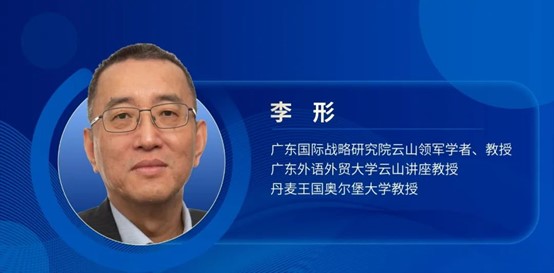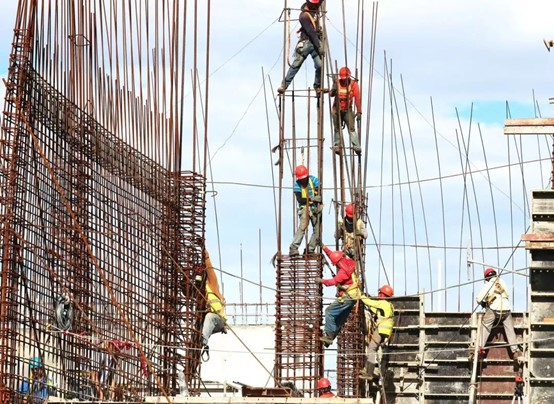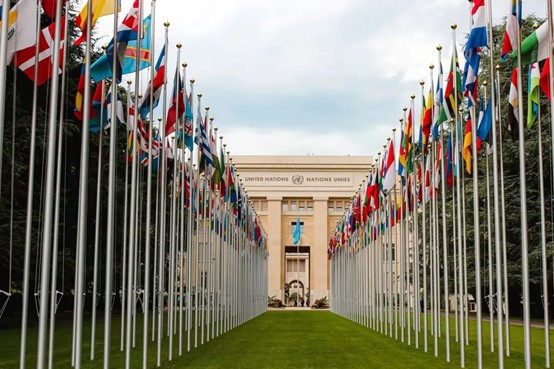导读:
近日,我院特聘研究员李形教授接受了英国对华事务全国委员会(UNKCC)的采访,主要探讨欧盟是否能够成为战略独立自主的国际角色处理中欧关系。
李形教授在采访中表示,未来的多秩序世界将在权力、原则和实践方面更加多样化,各国将在符合国家利益的基础上理性地结盟和聚集,而不是坚持单一的意识形态和政治动机秩序。
以下为采访原文。

How is the EU taking an increasingly active stance in its relationship with China, through what the European Commission President Von der Leyen termed “de-risking ”?
“De-risking” is much easier said than done. China holds an important position at the core of the global economy, serving as the largest supplier of goods. This means that excluding China from global supply chains poses major challenges for the world economy. Despite rising labour costs and restrictive Covid policies, moving production away from China is proving to be exceptionally demanding. China boasts a highly intricate and extensive supply chain, encompassing a network of suppliers, component manufacturers, and distributors. Even amidst “de-risking” discourse, most American and European countries still wish to remain in China, unwilling to forfeit the benefits the Chinese market has to offer.

How can the EU present a united stance when dealing with China? To what extent do differing objectives from EU member states pose a problem in reaching consensus?
The EU is not a superstate. It is a union of countries with varying economic and political ties to China. Consider, for instance, Germany, whose largest trading partner for the last 8 years has been China, and which has an interest in maintaining strong commercial relations. On the other hand, Eastern European and Baltic countries have comparatively weaker economic relationships with China and can afford to adopt a more assertive political stance. These divergent levels of engagement create challenges for the EU in presenting a unified front in its dealings with China.
Moreover, a key problem that the EU faces is its lack of strategic autonomy. To borrow a Chinese idiom, the EU is “standing in two boats”. It finds itself in an unstable position trying to maintain a strategic defence alliance with the US whilst deepening economic ties with China. In order to present a united front, the EU must be able to show that it does not wish to remain entrenched in the US-China dispute, but rather must aim to develop its own policies, moving beyond a supportive role to the US.
How does the EU view China?
The EU grapples with a multifaceted and somewhat contradictory perception of China, simultaneously viewing China as a partner, competitor, and systemic rival. Each of these perspectives can be seen as valid.
China is a partner in economic development through initiatives and institutions like the Belt and Road Initiative (BRI) and the Asian Infrastructure Investment Bank(AIIB). China also collaborates in education and research through institutions like Confucius Institutes. However, such partnership does not exclude competition or even rivalry. The BRI is evidence of this three fold characterisation which shapes the EU's approach to China.
Another critical element involves the EU's self-identification as a normative power, leading in areas such as democracy, human rights, global governance, and international aid and investment. However, the rise of China has challenged the EU's ability to influence or reshape China through its own established norms and values.
The realisation of this failure has led to a certain disappointment and frustration in Europe, acknowledging that China is getting stronger, but on its own terms.
Despite wishful thinking that China might progressively adopt a Western-style democratic system through economic reform, China not only remains unchanged but now poses a challenge to the EU's norms, extending its influence into the Global South. This creates a dilemma for the EU, which sees its grip on its traditional spheres of influence, particularly in Africa and Latin America, weakening. While the EU closes Confucius Institutes, countries in the Global South actively seek to establish more, highlighting a significant challenge to the EU's normative and rules-based international approach.
The EU therefore faces a substantial challenge not only in navigating its complex perceptions of China but also in managing the impact of China's influence on global norms, further emphasising the importance of perception in this dynamic relationship.

How does China view the EU when it engages with the EU?
There is a consensus in China that the EU acts as a shadow of the US inalmost all global affairs, especially in security domains, and lacks foreign policy autonomy. European politicians find this perception frustrating, not wishing the EU to be considered a subordinate ally of the US. Indeed, whilst Western European leaders like Macron and Scholz express a strong desire for autonomy, Eastern European countries prefer strengthening the transatlantic alliance and closer ties with the US.
These Eastern European nations, then viewing the US as their primary protector, are often more assertive and hawkish on China, particularly regarding issues like human rights and Taiwan.
From a media perspective, the Chinese media tends to avoid demonising the West, even though it often presents counter-hegemonic discourse, seeking to defuse great power narratives. While the Chinese media argues against European criticism, it refrains from portraying the West as inherently evil. By contrast, the Western media often depicts China in a negative light, particularly concerning issues in Xinjiang and the handling of Covid. Such portrayals do not help to foster constructive dialogue. A survey published in 2023 on public opinionin China revealed that the general Chinese public expressed favourable views of European countries. By contrast, Western public opinion towards China tends to be more negative, influenced by media narratives. My view is that such divergence in public opinion underscores the impact media discourse can have on shaping perceptions and the potential burden of maintaining certain narrative frameworks.
How do the Nordic countries engage with the EU?
The Nordic countries, renowned for their robust welfare institutions and status as some of the happiest nations globally, are active participants in the general deterioration of relations between the Western world and China. Denmark for instance, was amongst the first of the Nordic nations toalign with the U.S. securitisation discourse concerning Huawei and other perceived threats. And Sweden, has for many years arguably had the worst relationship with China of any EU countries.
Driven by strong norms and values, Nordic countries tend to be outspoken critics of China. Yet, sucha normative focus does not impede a pragmatic business approach with China, even amidst growing economic competition. Denmark is illustrative of such growing competition. Two to three decadesago, Denmark stood as a formidable competitor in the wind power industry. Today however, China has emerged as the largest supplier of wind turbines globally, leaving Denmark a victim of the consequences of intensified Chinese competition.
Yet, China’s economic competition has also benefited other companies, such as Maersk, who has enjoyed growing business relations with China, given the nation’s reliance on container shipping for its exports.

What role did the BRI play and still plays in the EU’s approach to China? How does it impact European interests?
The Belt and Road Initiative (BRI) is the highlight of China's current foreign policy agenda. During the BRI Forum held this October in Beijing, Xi Jinping expressed a hope that Western countries would be active actors in the project. While the beginning point of the BRI is China, Europe is ultimately one important desired terminus. Yet the BRI has met with much difficulty and sparked clear division within the EU. Most recently, in December 2023, Italy, the sole G7country involved in the BRI, has notified China of its withdrawal, after a period of hesitant resistance.
The BRI thus reflects the EU's struggle with the conflicting identities it ascribes to China, questioning whether it should be seen as a partner, competitor, or rival. The BRI does indeed encompass all these aspects.
It offers the EU opportunities for partnership, through joint ventures and infrastructure projects. It is evidently also competitive, given China's globally competitive infrastructure industries which have earned China the reputation of an “infrastructure monster”. Finally, acting as a systemic rival, the BRI embodies Chinese foreign policy, embedding Chinese values, norms, policy-making, development models, and world views into the projects and engagements along the BRI route. Such an integration has naturally generated a nervousness from the EU.
The EU's wariness of what was originally the 16+1 format underscores this dilemma. While aspiring for EU membership, Balkan countries seek to maintain economic ties with China, rendering their EU membership even more difficult. The EU fears that such strong Chinese connections would complicate membership due to competitive norms, values, and policy-making.
The difficulties posed by the BRI also extend to the EU's geopolitical ambitions.
The establishment of a European “geopolitical Commission”, announced by the Commission President von der Leyen, thus reflects an acknowledgment that normative and norm-setting power are insufficient means to strengthen the EU’s strategic autonomy. The EU recognises it will not go far unless it prioritises competition and market imperatives, lessening the sway of normative perspectives in its foreign policy. This shift highlights the evolving dynamics as the EU navigates its relationship with China in the context of the BRI.

Can there be a common European China strategy?
I am not convinced the EU has the ability to formulate a unified strategy toward China. A chief factor hindering the adoption of a common strategy is China’s sheer size and influence. Individual member states each have their own priorities and challenges with China. Internal disagreements, like in Germany, where despite the publication of a German Strategy on China over the summer, divisions on policy are still strong amongst rival parties.
Events like the Ukraine war emphasise this challenge.
Arguably, China's policy in the Russian aggression on Ukraine has more to do with countering the US, leaving the EU caught in the crossfire. My view is that the EU recognises that, without China, Russia would struggle to sustain the war. Globally, competition centres on the US-China dynamic, taking in areas such as artificial intelligence, 5G, and quantum computing, leaving the EU lagging behind, once again to rely heavily on the US. Despite wishes to avoid entanglement in US-China rivalry, the EU, constrained by its lack of strategic autonomy, is ultimately confined to the parameters set by the US on security and technological issues. This includes following US sanctions on Huawei's 5G and China's semiconductor industry. As ones cholar puts it, history has shown that “When the going gets tough, the EU has no choice between 'strategic autonomy' and ‘the transatlantic alliance’.” The Russian aggression on Ukraine has thus confirmed that the EU consistently prioritises the transatlantic alliance.
Furthermore, there is a significant disparity between discourse and reality. Negative narratives of China raise concern amongst the European public, who do not understand governments’ ambivalence regarding China. This can make policy-making substantially harder. By contrast, the Chinese mediadoes not portray the EU in such a manner. Thus unburdened, China is evolving into an ordering power and rule-maker. Over the past decade, under Xi's leadership, China has called for the reform of the global governance system and has accordingly initiated various global initiatives such as the Belt and Road Initiative, the Global Development Initiative, Global Security Initiative, and Global Civilization Initiative. These efforts challenge traditional Western dominance, and have prompted reactions from the West, such as the EU’s Global Gateway and America’s Build Back Better.
As expressed above, China is transforming into an ordering power, contributing to a multi-order world. This concept of a multi-order world envisions a shift from a singular US-led international order to a system consisting of several international orders.
The coming multi-order world is thus expected to be more diverse in power, principles, and practices. Instead of adhering to a single ideological and politically motivated order, countries will rationally align and cluster on specific issues in line with national interests. The challenge then will lie in the crafting of complex relationships among diverse actors in intricate intersections. Scholars and policymakers must therefore embrace new perspectives and institutions to adapt to this changing landscape, requiring a fundamental shift in thinking aligned with these complex realities.
China's Belt and Road Initiative(BRI) can therefore be seen as constituting a new order with Chinese characteristics, challenging the existing world order. It represents a comprehensive, strategic, and transformative initiative to enhance regional connectivity, promote economic integration, foster cooperation, and reshape global development landscapes.
Understanding the Chinese BRI order then involves examining its objectives, principles, challenges and its implications for global governance. The question that remains now is how the EU will position itself in this evolving global landscape: as an independent order or whether it will align with one of the major orders led by the US or China.

文章来源:《UKNCC》


